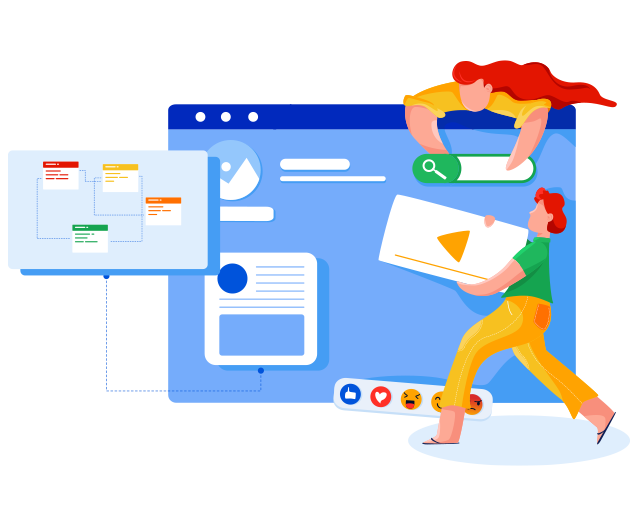When building or updating your website, you need a good plan and a concrete set of actions that can get you from one task to another, all leading up to what should be your ultimate goal: converting customers. Keep these four questions in mind when making decisions around building your website:
1. Do you have a well-structured plan?
Before anything else, you must know who you want to reach. This means being specific about your target customers, from their age to their social circles and interests, down to the other brands they might enjoy using.
These things will help you make a website that captures their attention and gets them to stay for the content. ‘Niching-down’ also helps you focus your efforts. Instead of putting all sorts of messages out, choosing a group to serve or to address with your content will let you stand out from similar brands.
For example, if you are a fan of fantasy or science fiction, you would not choose a general bookshop to help you find new titles. You would go for a store that carries those two genres specifically. When you focus on a niche, you give space to an audience that may be overlooked by large websites. It also gives you the opportunity to make more detailed content plans which will boost your SEO efforts.
2. Have you set up your SEO and analytics tools?
If you have a plan for your content, you must also prepare for how you will measure its effects on your audience. Analytics tools help you gather information on your website, such as the volume of visitors a page gets, where on the internet they come from, and even what they search most frequently. Analysing your website will give you a good idea of what is working and what is not, and you can use this to decide which practices to continue or to cut.
Aside from planning for content and measurements, you should also cover tasks like writing meta tags and a sitemap. A sitemap tells search engines which pages on your site can be used for rankings. If you strive to include all of your pages in your sitemap, this makes your website more visible to users, as Google will be better able to relate it to keywords relevant to your site. If you are struggling to do this yourself, consider using our monthly SEO service that will do all of this for you.
If you want to ‘go it alone’, and you’re using WordPress to build your website, consider installing a plugin called Yoast SEO. It’s very easy to use. The fee version will get you exactly what you need.
3. Is your content fit for your audience?
On-page SEO functions in several ways for your business. The first is that it introduces you to the audience without you needing to directly refer to your brand values. Second, if it’s well written, it provides concrete answers and solutions to concerns your audience has. Third, if people engage with your website by staying on it, sharing it with their friends, or performing your call-to-action, you get ranked more favourably by Google, which creates a positive loop for you and your search ranking.
When done right, on-page SEO content will make you matter both in the eyes of your audience, and for the search engine algorithms deciding where to place you in the ranking system. Be sure you address things like keyword density and page engagement while maintaining an authentically human sound and look.
4. Are you optimising for mobile and page loading?
Today, Google prioritises websites that work well on mobile. This is because they’ve discovered that more than half of the queries on their search engine are through mobile devices. For people cultivating an online presence, this means that your website should be responsive to the device which it is being viewed on. You don’t need two versions of a website; one for mobile and one for desktop. You need one site that adapts.
Aside from mobile-first indexing, the page load times also matter. Your mobile website must load quickly, as slow load times lose potential customers. Because there are so many choices for content today, you cannot afford to lose a visitor to your site just because they’re getting impatient with how slow your page loads.
Conclusion
Today, it’s not enough to build a website and hope that people will notice it. You must be intentional about engaging your audience from the start. Know who you want to attract, what information to provide them, and how to get this information across in the quickest way possible. This will help you rise above the noise online, earning you loyal visitors, and eventually, loyal customers.
If you are looking for affordable, comprehensive optimisation packages, get in touch with SEO Pilot today. We are Cornwall’s SEO specialist, and we’ll be sure to take care of everything your business website needs to make a mark online. Contact us today for details.
